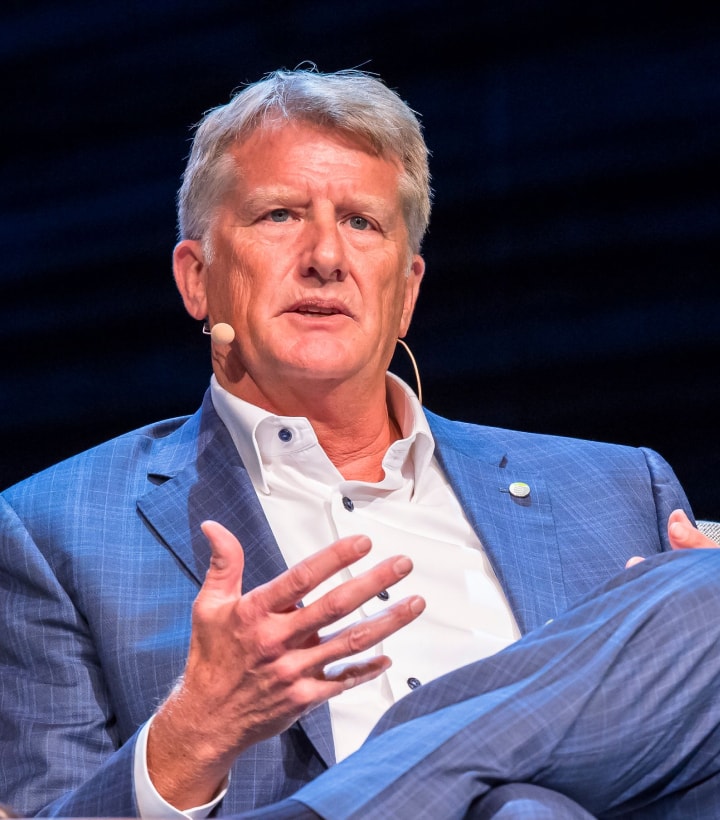Our Focus:
We are facing a far greater pandemic than COVID-19, but it has been happening in slow motion, and as a result, receives too little attention and very little collective action when compared with the scope
of the problem. Our diets are the number one risk factor for mortality and morbidity, the cause of nearly one in five deaths globally, and are considered one of the top three human-related social burdens we face. Poor diet and lifestyle are creating unsustainable economic and social costs from the burden of disease, and in the developed and developing world, rich and poor countries alike. Rapid urbanization and the resulting dietary shifts that accompany busy time-starved lifestyles,
as well as aging populations globally, are all accelerating the burden
of disease – even in the developing world.
COVID-19 is also shining a bright light on our vulnerabilities
and amplifying the urgency to act now.
of the problem. Our diets are the number one risk factor for mortality and morbidity, the cause of nearly one in five deaths globally, and are considered one of the top three human-related social burdens we face. Poor diet and lifestyle are creating unsustainable economic and social costs from the burden of disease, and in the developed and developing world, rich and poor countries alike. Rapid urbanization and the resulting dietary shifts that accompany busy time-starved lifestyles,
as well as aging populations globally, are all accelerating the burden
of disease – even in the developing world.
COVID-19 is also shining a bright light on our vulnerabilities
and amplifying the urgency to act now.
Obesity and underlying health amplify the impacts of COVID-19, and dietary interventions can reduce the rate of infection and the severity of illness. Our diets are not only killing us; they’re making us less resilient – especially our most at-risk populations.
We have optimized our food system for cheap calories, mass produced. We need to re-imagine and optimize it for health promotion and health outcomes. Improving health through food is a systems challenge
and will require new kind of collaboration and multi-stakeholder approach to innovation and business model thinking. It will require bringing the food and health ecosystems together in new ways.
It cannot be done in silos. Solutions to complex challenges will require courageous partnerships, creative coalitions and co-creation.
We have optimized our food system for cheap calories, mass produced. We need to re-imagine and optimize it for health promotion and health outcomes. Improving health through food is a systems challenge
and will require new kind of collaboration and multi-stakeholder approach to innovation and business model thinking. It will require bringing the food and health ecosystems together in new ways.
It cannot be done in silos. Solutions to complex challenges will require courageous partnerships, creative coalitions and co-creation.
Our Journey and Community:
TWIN has been engaged in food and agriculture topics for the past several years but launched this new catalyst in 2019.
Our journey has involved global dialogues and roundtable events, engagement with well over 100 global innovators and thought leaders, a 4-day Catalyst session in Amsterdam and now working groups of leaders advancing the ideas into executable concepts.
Currently our community involves leading innovators, thought leaders and practitioners across the food and healthcare ecosystems—spanning business, government, academia, the nonprofit sector, technology, finance and venture.
Our journey has involved global dialogues and roundtable events, engagement with well over 100 global innovators and thought leaders, a 4-day Catalyst session in Amsterdam and now working groups of leaders advancing the ideas into executable concepts.
Currently our community involves leading innovators, thought leaders and practitioners across the food and healthcare ecosystems—spanning business, government, academia, the nonprofit sector, technology, finance and venture.
Our Agenda and Action Areas:
We are creating and deploying a problem-solving platform that connects innovators and their innovations around challenges to help empower human health through food, sustainably. We are mobilizing global and regional networks of innovators to cultivate and activate a opportunities for cross-sector, multi-stakeholder collaboration around the following three challenge areas:
1. Nourishing the Undernourished:
A market-based approach to address dietary transformation and the shift to obesogenic diets among the “hidden hungry” in rapidly urbanizing environments in the developing world. Focused on re-establishing individuals and communities at the center of the food system, partnering to build the capacities of food businesses to scale their impact, tackling the funding gap for innovative food SMEs, and fostering collaboration and inclusion across the value chain.
2. Food IS Medicine:
Bringing together the food and healthcare ecosystems to develop approaches to scale programs that work (e.g. food prescriptions and medically tailored meals) to create broader community impact, explore and test new business models for funding nutrition an food-based interventions that ensure healthy food is the affordable and obvious choice; and tackling next-generation food opportunities at the nexus of microbiome, nutrition science and technology.
3. Coalition for Shifting Diets:
Working on a pre-competitive basis to collaboratively influence consumer decision making and demand shaping for healthy food. Focsued on re-establishing the consumer as the first mile rather than the last mile and tackle demand-side issues: making the healthy choice the desirable choice while solving the barriers to accessibility, affordability and simplicity.
1. Nourishing the Undernourished:
A market-based approach to address dietary transformation and the shift to obesogenic diets among the “hidden hungry” in rapidly urbanizing environments in the developing world. Focused on re-establishing individuals and communities at the center of the food system, partnering to build the capacities of food businesses to scale their impact, tackling the funding gap for innovative food SMEs, and fostering collaboration and inclusion across the value chain.
2. Food IS Medicine:
Bringing together the food and healthcare ecosystems to develop approaches to scale programs that work (e.g. food prescriptions and medically tailored meals) to create broader community impact, explore and test new business models for funding nutrition an food-based interventions that ensure healthy food is the affordable and obvious choice; and tackling next-generation food opportunities at the nexus of microbiome, nutrition science and technology.
3. Coalition for Shifting Diets:
Working on a pre-competitive basis to collaboratively influence consumer decision making and demand shaping for healthy food. Focsued on re-establishing the consumer as the first mile rather than the last mile and tackle demand-side issues: making the healthy choice the desirable choice while solving the barriers to accessibility, affordability and simplicity.
Get Involved
For more information, or to join our global movement, please reach out to Scott Bowman,
Co-Chair of the Nourish2050 Catalyst, at sbowman@clareo.com
Co-Chair of the Nourish2050 Catalyst, at sbowman@clareo.com




b
It’s about impact at scale. What would it take to double or triple the impact, in a fraction of the time?
I realized one morning we should give back right now, when people need it most…
The idea of nourishment is fundamentally what the world needs.
It’s about impact at scale. What would it take to double or triple the impact, in a fraction of the time?
I realized one morning we should give back right now, when people need it most…
The idea of nourishment is fundamentally what the world needs.
Mariya Filipova
VP Anthem Innovation
Gary Hoberman
Founder & CEO, Unqork
BRIAN GRIFFITH
Executive Chairman, Griffith Foods
01/03
